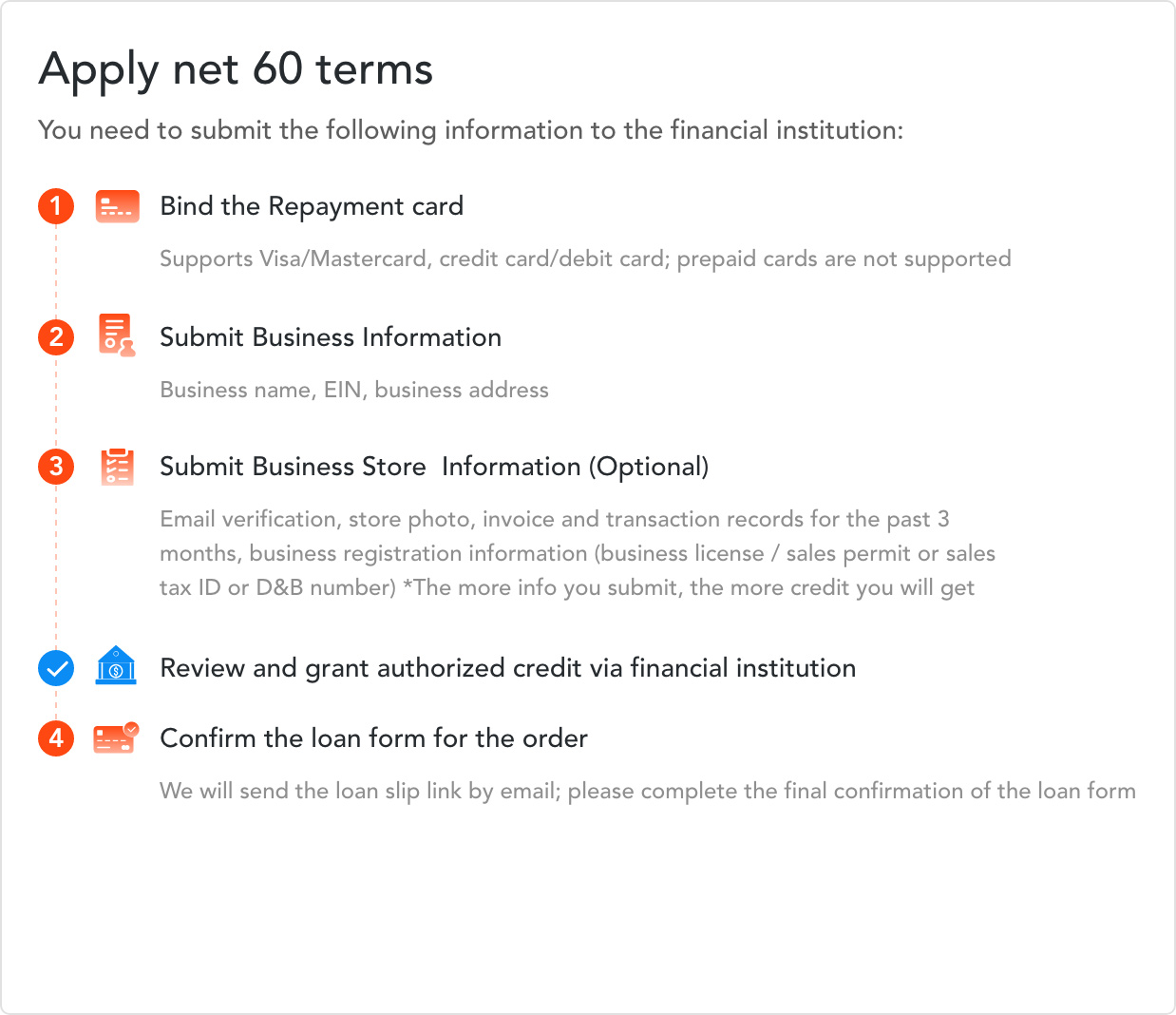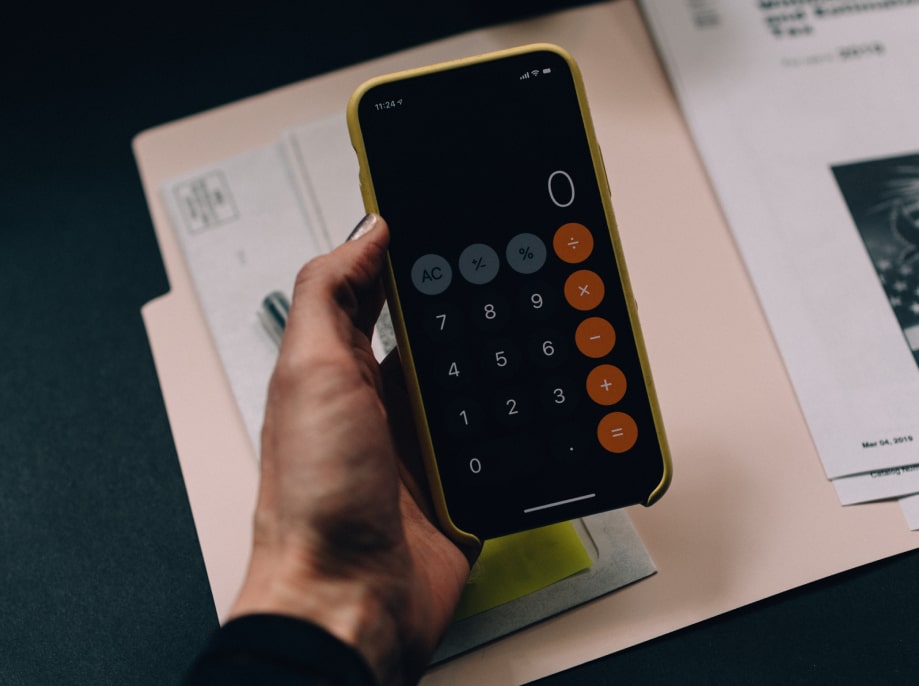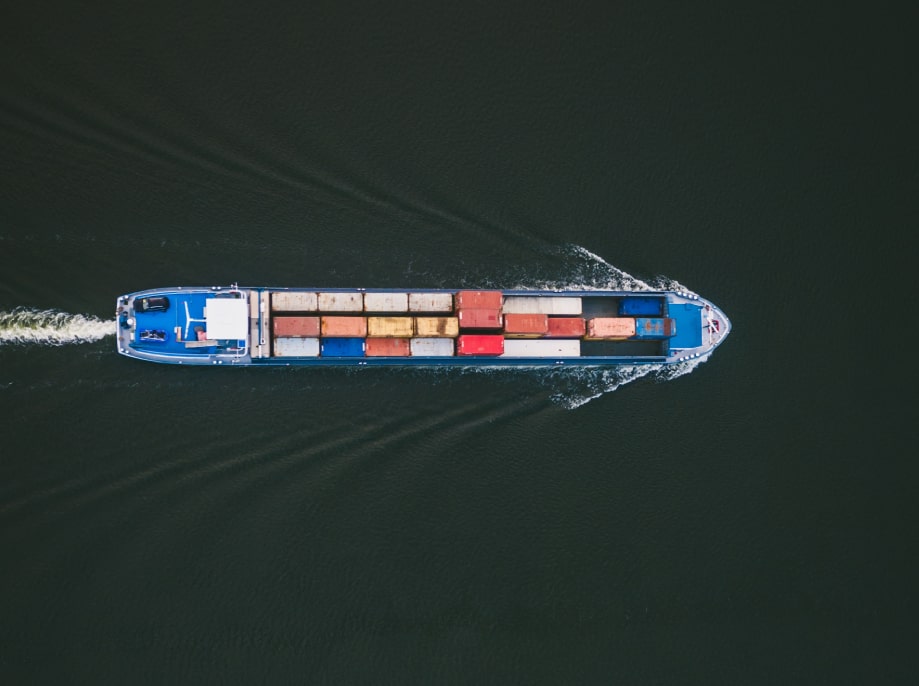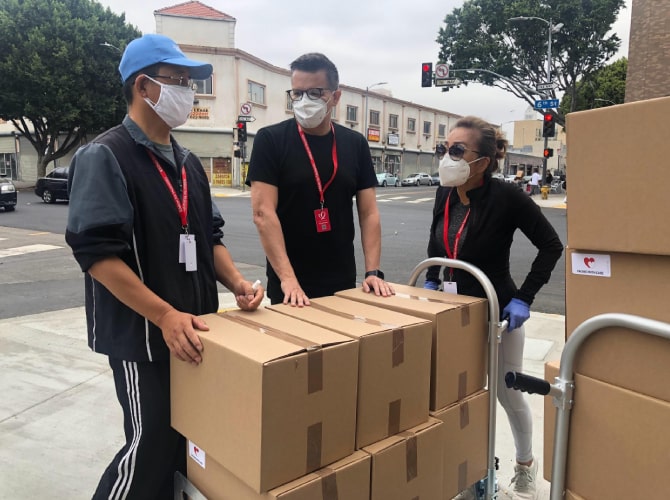
You know when you go out to dinner with friends, and there's that awkward moment when the bill comes? Everyone's bickering over who pays what and no one is really sure what they owe for a tip.
Imagine if an agreement was in place before you even sat down, outlining exactly who was financially responsible for what.
Well, for the shipping industry, one of the agreements actually exists!
Incoterms® are used to specify which party arranges for the payment and handling of goods during shipping, from origin to destination.
"Incoterms" stands for "International Commercial Terms" as defined by the International Chamber of Commerce. They are a set of 11 rules that define who arranges for the payment and handling of the goods during shipping. They take effect when the goods leave the seller's door up until their arrival at the buyer's final destination.
Sounds pretty straight forward, right? And for the most part, it is! However, like all things in global shipping and manufacturing, there are some things to be aware of with Incoterms. So this is a quick guide to Incoterms, what they can do and what they can't. Hint - they can't help to settle your dinner bill.
An overview of Incoterms® 2020 Terms:
- EXW - Ex Works (insert place of delivery)
- Ex works is when the seller places the goods at the disposal of the buyer. The seller has no obligation to load the goods onto any collecting vehicle.
- FCA - Free Carrier (Insert named place of delivery)
- The seller delivers the goods to the carrier or another person nominated by the buyer.
- CPT - Carriage Paid to (insert place of destination)
- The goods are considered delivered when they're placed alongside the vessel (e.g., on a quay or a barge).
- FOB - Free on Board
- The seller delivers the goods on board the vessel nominated by the buyer at the named port of shipment or procures the goods already so delivered.
- CIP - Carriage and Insurance Paid To (insert place of destination)
- The seller delivers the goods onto the buyer's vessel.
- DAP - Delivered at Place (insert named place of destination)
- The seller has the same responsibilities as CPT, but they also contract for insurance cover against the buyer's risk of loss of or damage to the goods during the carriage.
- DPU - Delivered at Place Unloaded (insert of the place of destination)
- The seller delivers when the goods, once unloaded, are placed at the buyer's disposal.
- DDP - Delivered Duty Paid (Insert place of destination).
- The seller delivers the goods when the goods are placed at the buyer's disposal and cleared for import on the arriving means of transport
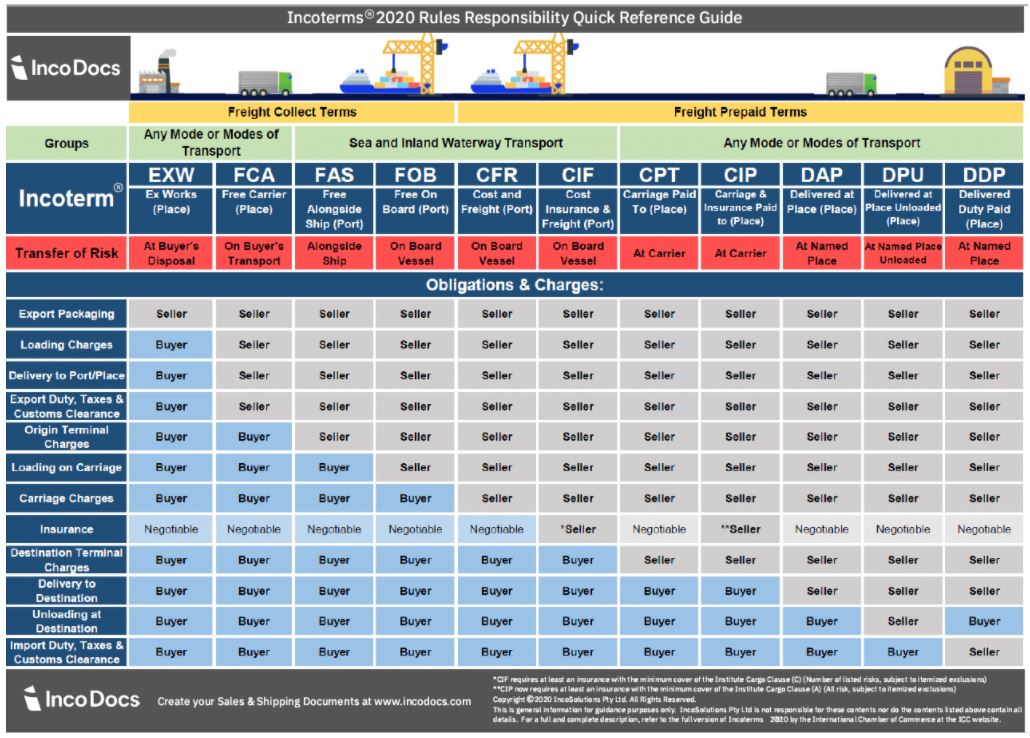
What Incoterms Do Not Cover
As you can see, Incoterms cover quite a lot. But they don't do it all. For example, Incoterms do not:
- address all the conditions of a sale;
- identify the goods being sold nor list the contract price;
- reference the method nor timing of payment negotiated between the seller or buyer;
- when the title, or ownership of the goods, passes from the seller to the buyer;
- specify which documents must be provided by the seller to the buyer to facilitate the customs clearance process at the buyer's country; and
- address liability for the failure to provide the goods in conformity with the contract of sale, delayed delivery, nor dispute resolution mechanisms.


